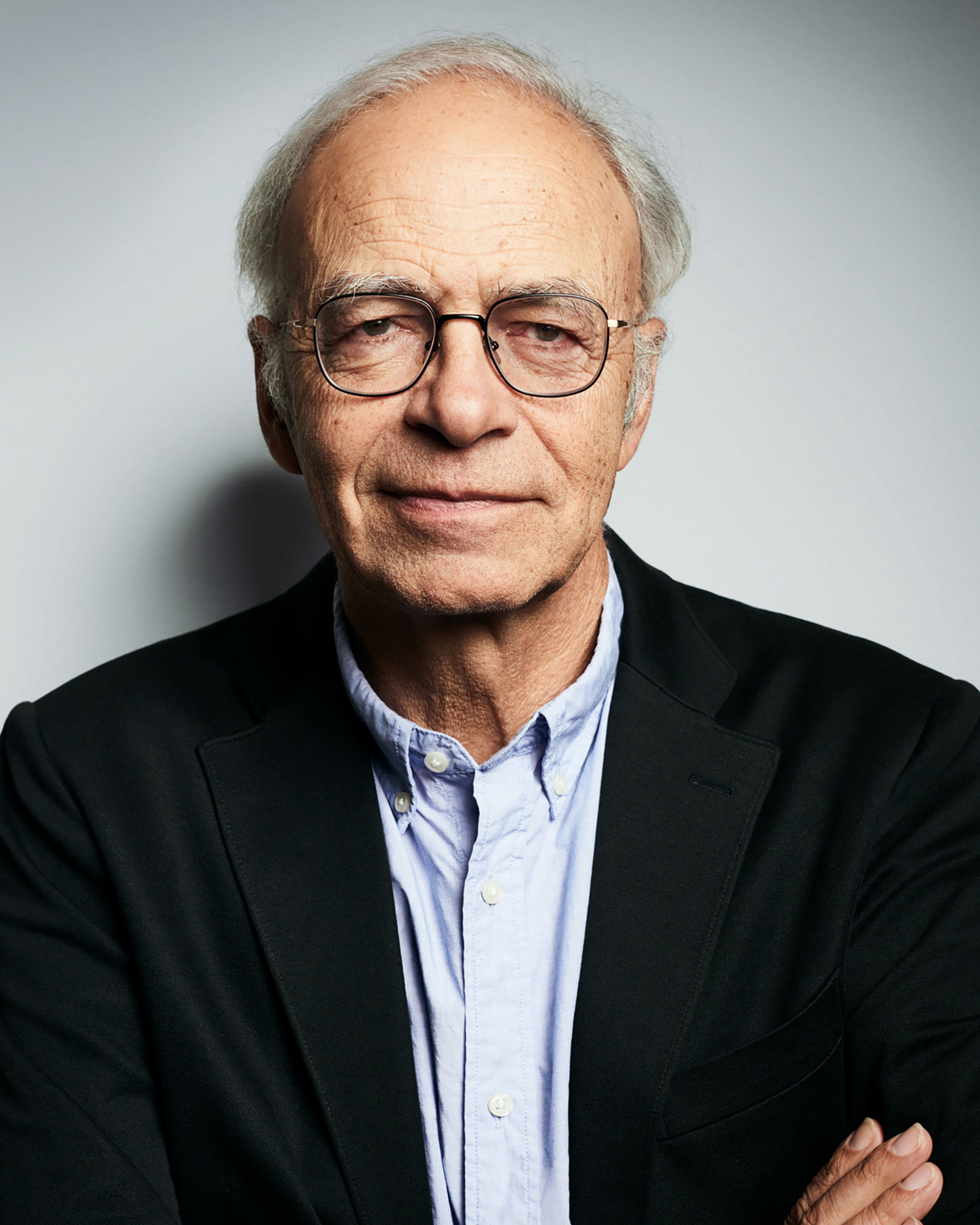Peter Singer

Peter Singer was born in Melbourne, Australia, in 1946, and educated at the University of Melbourne and the University of Oxford. After teaching in England, the United States, and Australia, he has, since 1999, been Ira W. DeCamp Professor of Bioethics in the University Center for Human Values at Princeton University.
Singer first became well-known internationally after the publication of Animal Liberation in 1975. In 2011, Time included Animal Liberation on its “All-TIME” list of the 100 best nonfiction books published in English since the magazine began, in 1923. Singer’s book The Life You Can Save, first published in 2009, led him to found a non-profit organization of the same name that has raised more than US$35 million for the most effective charities assisting people in extreme poverty.
Singer has written, co-authored, edited, or co-edited more than 50 books, and his writings have been translated into more than 30 languages. Some of his other well-known books are: Practical Ethics; The Expanding Circle; How Are We to Live?; Rethinking Life and Death, Pushing Time Away; Ethics in the Real World; and Why Vegan? He has recently edited a new edition of what may be the world’s earliest surviving novel, The Golden Ass, by Apuleius.
In 2012, Singer was made a Companion of the Order of Australia, the nation’s highest civic honor. Since 2021, he has been a co-editor of the Journal of Controversial Ideas, which enables authors to publish well-argued controversial essays in a peer-reviewed journal under a pseudonym.